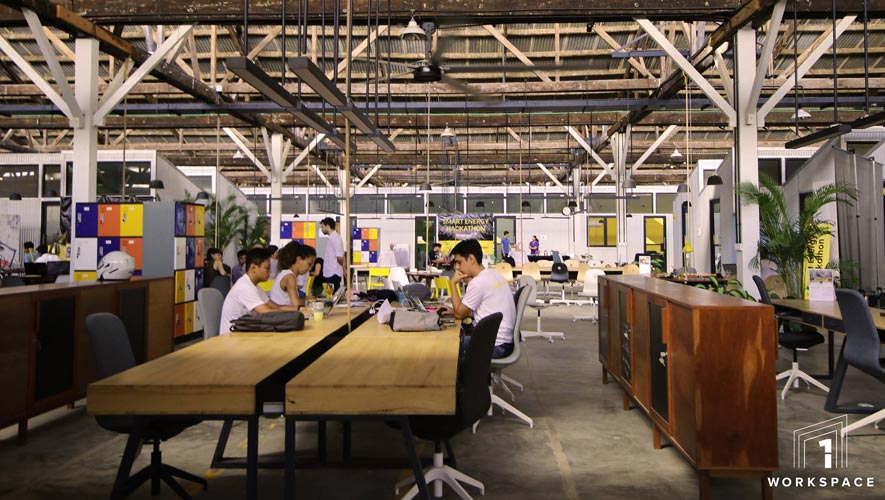Co-working spaces are gaining momentum in Phnom Penh as they not only offer workspace but also work-life balance
For the latest Cambodian Business news, visit Khmer Times Business
Seen as the future of offices, the concept of co-working space is taking the world by storm, and Phnom Penh, no less.
A recent estimate in an article in The Economist puts the number of remote workers at one billion by 2035.
In Phnom Penh, more than 12 co-working spaces have sprung over three years, taken up mostly by startups and remote workers.
Udom Kobe Khy, community manager of Workspace 1, says space users are mainly university students, young entrepreneurs and digital nomads travelling through the region.
Some 20 small and medium enterprises (SMEs) are sited in Workspace 1, which is located within The Factory in Khan Mean Chey. Factory Phnom Penh is made up of mixed-use IT centres and creative hubs.
The enterprises in Workspace 1 share the area with undergraduates and post-graduates including young expatriates.
Khy says the objective of a co-working space is to strike a balance between work and recreation which most traditional workplaces fail to offer.
Factory Phnom Penh has the only trampoline park in the country and members are allowed to use it while working there. There is also a basketball court, and bicycles to move within the complex.
“A lot of the startups use co-working spaces to reduce overhead costs. It is a small investment before they expand. At the same time, they enjoy a communal atmosphere,” he adds.
Similarly, Green Penthouse’ co-working space called Outpost, located in a condominium on Tonle Sap Street has recorded an increase in membership in the last year.
Green Penthouse houses offices and co-working spaces where users can use all the facilities in the building.
Its owner and founder, Kim Gjemmestad hopes to build a permanent community of startups in one space which includes a kitchen, breakout rooms, meeting rooms and Internet.
Lifting financial obstacles
For ride-hailing startup, TADA, working out of a co-working space makes financial sense. TADA is the first ride-hailing service by Mass Vehicle Ledger (South Korean MVL Foundation
Pte Ltd), a company that utilises blockchain-based ecosystem.
“Our parent company is in Singapore and the Cambodian team is small. So working in this place reduces our cost,” says operations head Kalyana Phal.
She says startups often prefer to minimise costs of doing business such as rental so that it can reinvest that sum into operations.
Workspace 1 offers individual remote workers $8 a day and $120 a month rent while spaces that can accommodate a six member-team can cost around $500 a month. Flexible packages tend to be more attractive compared to fixed rentals.
Rental aside, Khy says that collaboration is important for startups and SMEs as it encourages interaction that can spark business ideas.
Growing local economy, talents
Part of the sharing economy, the co-working concept generates creative economy. For instance, the spaces enable entrepreneurship to take off.
In Workspace 1, food and beverage providers share the space which not only develops job opportunities but also talent and a platform to share ideas.
Homegrown travel website, Bayonia.com, a travel booking website catered to Cambodians, which is based in Siem Reap, has a sales and marketing team in Emerald Hub co-working space to meet the needs of its users, most of whom are from Phnom Penh.
To encourage growth of its members, co-working space hosts events such as training seminars and talks to help businesses.
It fosters connection and serves as a platform for businesses to gain new clienteles.
Newcomer Trybe, a co-working space located in central Phnom Penh, differentiates itself by providing 3D design and printing classes to attract interested parties.
While the concept remains novel, the workspace segment has its challenges including the rise of cafes with wifi facilities.
To overcome them, these spaces need to localise the concept to encourage younger groups like students to relocate there. The conversion also helps address the issue of a sustainable income contributed by long-term users.
Going forward, with the expansion of start-ups in Cambodia, co-working spaces own the advantage of providing the venue and avenue for growth for these communities.




